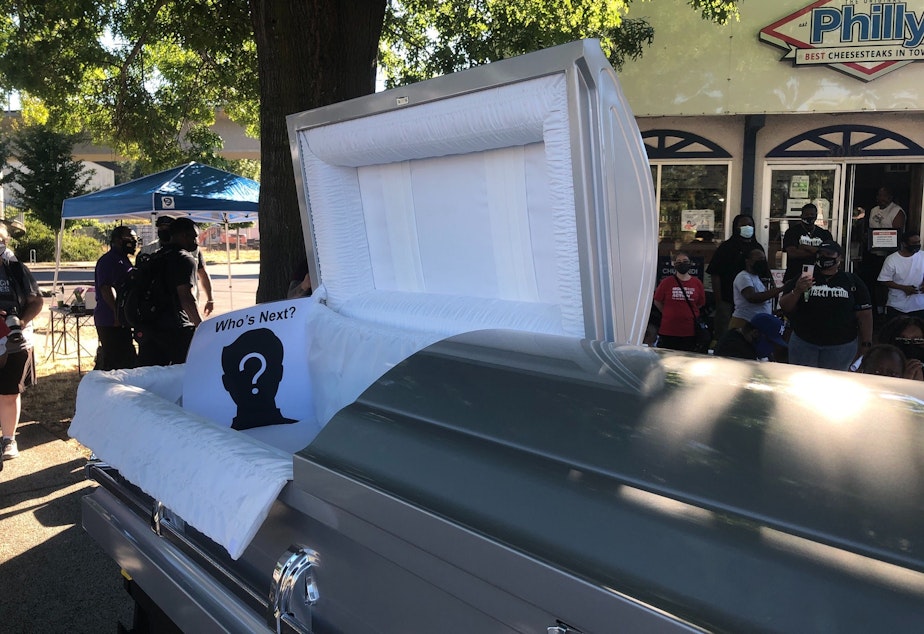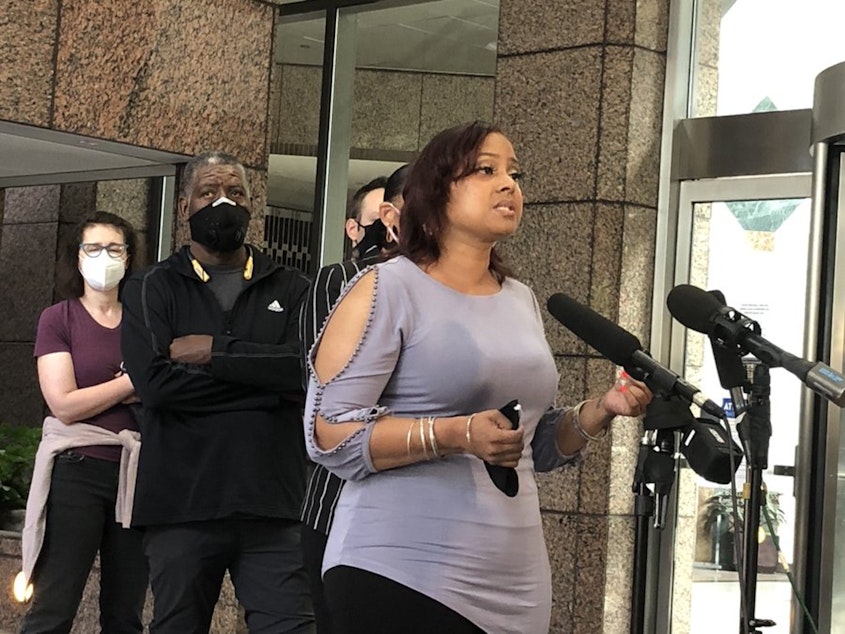Gun violence devastated her family. Now she's working with Seattle to end it

DeVitta Briscoe is Seattle’s first-ever liaison for gun violence prevention. For her, the issue and the losses are personal.
Her new job in the mayor’s office marks a transition from community advocate to city official.
Briscoe’s son Donald was shot and killed in Tacoma as a teenager in 2010. In 2016, Seattle police killed her brother Che Taylor. Their deaths led to her work with nonprofits focused on violence prevention and police accountability.
Briscoe said she’s glad Mayor Bruce Harrell is seeking solutions from the people most affected by gun violence.
“I bring real, lived experience and professional experience into this space, and I’m not a stranger to the trauma of gun violence,” she said. "Not only is the mayor showing that gun violence prevention is a priority, he’s saying he believes in community engagement with those that are most impacted.”
At the same time, Briscoe said she has some mixed feelings about her new role.
“I’ve gotten a lot of congratulations and ‘I’m so proud of you’s’ and I feel like – this is a job that no one should have, right? I have to work myself out of this job at some point.”
Sponsored
Her appointment comes as Seattle police counted 40% more shots fired in the city from 2020 to 2021.

Briscoe said addressing Seattle’s increased gun violence requires attention to frontline incidents — and root causes. She said city officials must try to restore hope in the face of endless devastating headlines.
“I think we’re suffering from gun violence fatigue,” she said. “How many hashtags can we post and how many ‘rest in peace’ t-shirts can we wear, and how many makeshift graves can we put on street corners before we just grow weary?”
Briscoe said she'd like the city to set a realistic goal to reduce homicides and shootings. Her own efforts, she added, will focus on community-based solutions, like street outreach and violence interruption, which Seattle and King County have been ramping up in recent months.
Sponsored
But given the magnitude of the problem, and the fact that the overwhelming majority of shooting victims are people of color (in King County in 2021, 81% of victims were people of color), Briscoe said she’s open to solutions from law enforcement as well.
“I think we need to get past this polarized us-versus-them politics and focus on solutions that will strengthen both community and enforcement-based approaches,” she said. “Otherwise we’re not going to see the progress that we want to see.” She said, “In order to solve this problem, there’s going to have to be some reconciliation.”
The Seattle Police Department needs sufficient staffing for emergency response and thorough investigations, she said, “even if that role is a background role where community is out in the forefront. There still needs to be some healthy coexistence between community and law enforcement.”
Briscoe said she’s excited about the current launch of the Beloved campaign, a 12-week multimedia project focused on the prevention and treatment of gun violence in King County. Seattle contributed $300,000 in federal pandemic relief dollars to the effort, and King County contributed another $100,000.
She said she's still getting settled into the new job, but one project she'd eventually like to pursue would be a memorial to the victims of gun violence. That way they would have a public space creating “a community of caring, wrapping around the people who have been deprioritized and ignored for too long,” she said. “ And I think that’s just a way — a gesture of the city standing with survivors — to say, ‘You matter.’”




